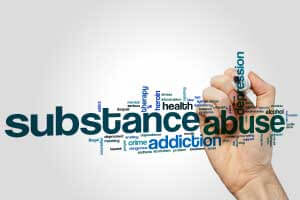There is a wide variety of substances and patterns of abuse, but in 2023, opioid abuse and overdose rates are on the rise and require the nation’s attention. The opioid overdose rates are largely due to synthetic opioid fentanyl and Polysubstance abuse.
Though painkiller alternatives are being developed, the need to address the underlying issues that may contribute to the misuse of drugs, including unresolved trauma and undiagnosed co-occurring disorders is also something that the treatment community is focusing on.
Substance Abuse Trends to be Aware of in 2023
- Opioids are the main driver in drug overdose with Fentanyl, which is largely undetectable and often cut into drugs like cocaine, methamphetamine, and fake prescription painkillers, being responsible for the majority.
- The DEA issued a public advisory regarding ‘rainbow fentanyl’ which seems to be targeting young people.
- Polysubstance use either intentionally or unintentionally is on the rise. Mixing the use of drugs intensifies the high but it creates an unpredictable and dangerous outcome. The CDC’s most recent survey shows that more than half of all overdose deaths involve the use of multiple substances.
- Harm-reduction modalities include personal drug testing equipment, syringe programs, overdose prevention centers, and Medication Assisted Treatment (MAT).
Substance Abuse Disorder Treatment Trends
- A human clinical trial of a Fentanyl vaccine blocks the drug from entering the brain, eliminating the ability to get high and the risk of overdose.
- With the growing awareness of mental health issues, attention is focused on substance use and co-occurring mental health conditions including anxiety and mood disorders. Recovery is most often successful when all conditions are treated simultaneously.
- Government Medicaid programs have expanded providing more funding to address SUD and mental health.
- Understanding the role that trauma contributes in developing substance abuse disorder.
- Using cognitive behavioral therapy, with an emphasis on recovery-oriented cognitive therapy to control pain instead of relying on prescription painkillers.
At Healing Springs Ranch, comprehensive health is always a priority. Every patient is different, and every patient deserves a personal, custom approach to their recovery. Often, that means a treatment and therapy plan that emphasizes mental health in addition to treatment for substance use disorder (SUD). Call 866-656-8384 to learn more about recovering from SUD today.
Healing Springs Ranch provides recovery support. Some of the highlights of therapy include, in addition to the Core Curriculum groups, Psychodrama, Art Therapy, Anger Management, ETT, and a Wellness Program. Residential treatment for adults recovering from substance use, alcohol, and other related mental health issues.

